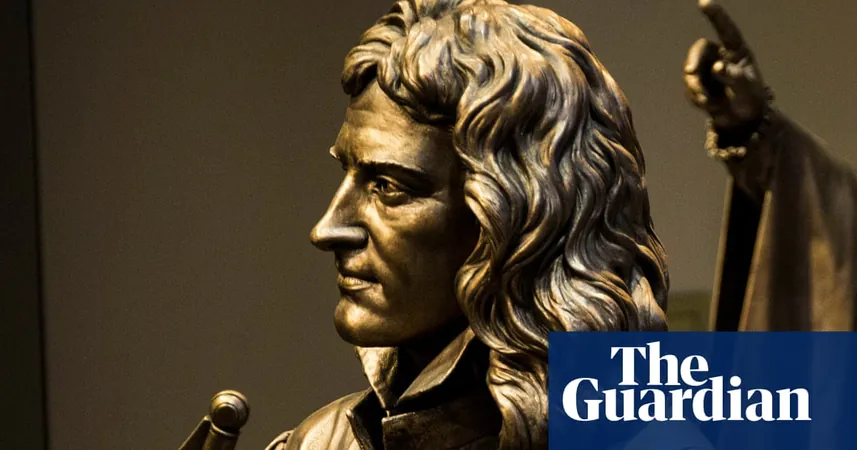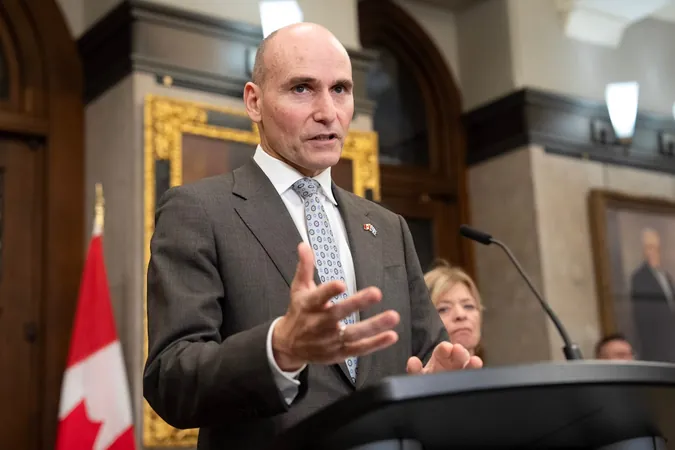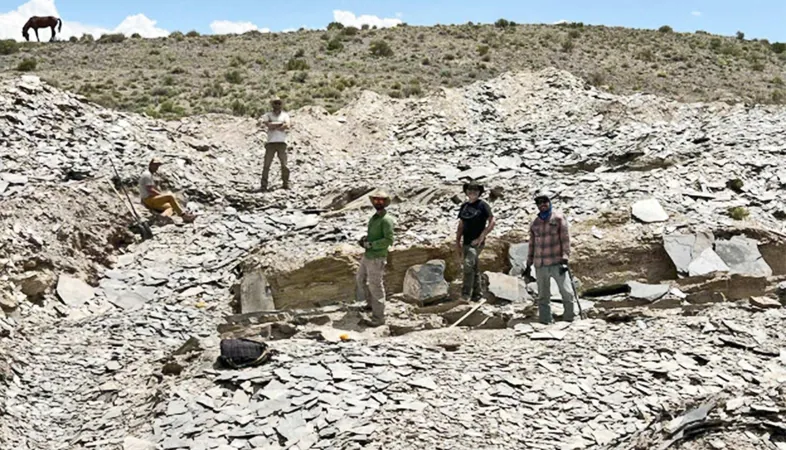
Unveiling the Dark Side of Isaac Newton's Wealth: Slavery Connections Exposed!
2024-11-24
Author: Noah
Introduction
A shocking new book reveals that Sir Isaac Newton, the iconic figure behind the theory of gravity and a key player in London’s financial scene, had ties to the transatlantic slave trade that were previously unrecognized. In "Ricardo’s Dream", author Nat Dyer investigates the life of David Ricardo, a trailblazer in economic theory and one of the wealthiest stock traders of his time, while casting light on Newton’s controversial financial legacy.
Newton's Accumulation of Wealth
During his influential 30-year term as master of the Royal Mint, Newton amassed considerable personal fortune. Dyer highlights that Newton's wealth was closely linked to gold that was predominantly sourced from enslaved Africans in Brazil. As master of the mint, he profited from every coin minted, contributing to a financial success built on the suffering of countless individuals.
Correspondence and Awareness
Dyer emphasizes, “Based on Newton's own correspondence, which we've digitized, he benefited from gold primarily mined by enslaved peoples.” Notably, even after suffering significant losses during a market crash, Newton died with immense wealth largely tied to the profits of the slave trade.
Influx of Gold
The influx of gold into the Royal Mint, controlled by Portugal and attributed to its extensive mining operations in Brazil, significantly boosted Britain's currency production. Remarkably, during Newton’s tenure, around £14 million in gold was minted—an amount equivalent to what had been minted in the preceding 136 years. Letters dated back to 1701 from Newton himself indicate awareness of the gold's origins, revealing a network of lucrative trade routes that fed into his financial gains.
Newton's Legacy and Financial Entanglements
Despite his monumental contributions to science, many scholars argue that Newton's legacy must be understood within the socio-economic realities of his time. “He was at the very center of this gold rush,” Dyer states. “The reality is, the wealth that flowed into the Tower of London elevated his status.”
But Newton was not alone in his financial entanglements with slavery. Historians note that many figures from Britain’s banking and finance sectors during the early 18th century shared similar connections to the slave trade. Prof. Leonardo Marques of Fluminense Federal University highlights that the exploitation in Iberian America was widely recognized among economists and mercantilist thinkers of that time, and it’s unsurprising that even great minds like Newton benefited from this system.
Connections to the East India Company
Furthermore, Dr. Patricia Fara, a historian from the University of Cambridge, points out that Newton had connections to the East India Company—known for its deep involvement in the slave trade—as well as a regrettable investment in the South Sea Company. Fara states, “It’s vital we acknowledge that great individuals in history were complicit in these injustices.”
Conclusion
While some may find it unsettling to consider Newton's financial success intertwined with the horrors of slavery, experts urge caution in passing moral judgment on historical figures. “Not every aspect of Newton's legacy should be radically altered,” Dyer reassures. “He was indeed a defining thinker, yet ethical reflections on his time are essential in understanding the complexities of his achievements.”
As we continue to unpack the history of renowned figures like Newton, it's essential to confront the uncomfortable truths about the foundations of wealth and privilege, paving the way for a more nuanced understanding of our past. The revelations presented in "Ricardo’s Dream" serve as a reminder of how intertwined knowledge, power, and profit can be within the complex tapestry of human history.









 Brasil (PT)
Brasil (PT)
 Canada (EN)
Canada (EN)
 Chile (ES)
Chile (ES)
 España (ES)
España (ES)
 France (FR)
France (FR)
 Hong Kong (EN)
Hong Kong (EN)
 Italia (IT)
Italia (IT)
 日本 (JA)
日本 (JA)
 Magyarország (HU)
Magyarország (HU)
 Norge (NO)
Norge (NO)
 Polska (PL)
Polska (PL)
 Schweiz (DE)
Schweiz (DE)
 Singapore (EN)
Singapore (EN)
 Sverige (SV)
Sverige (SV)
 Suomi (FI)
Suomi (FI)
 Türkiye (TR)
Türkiye (TR)